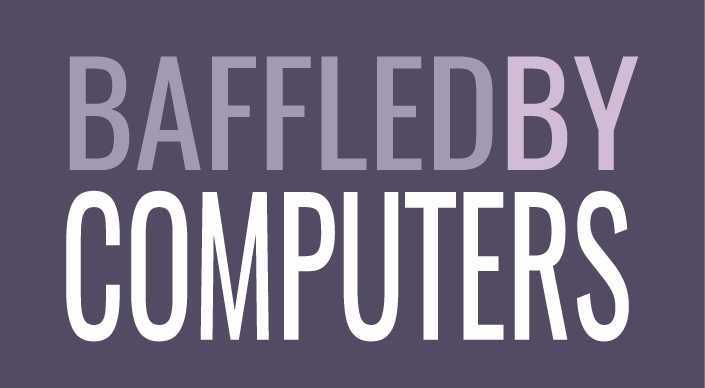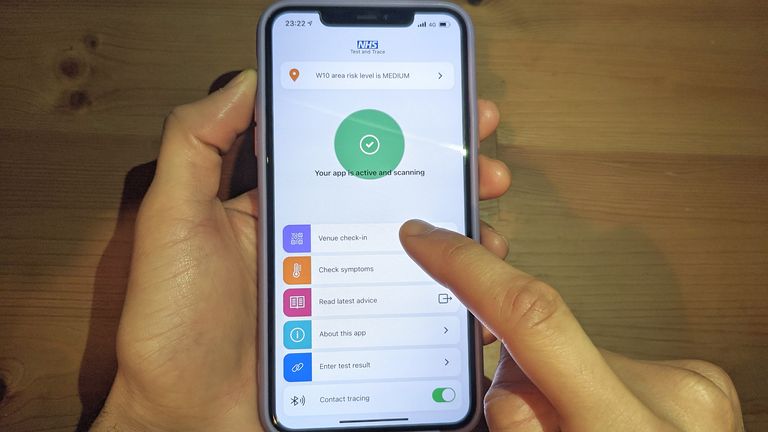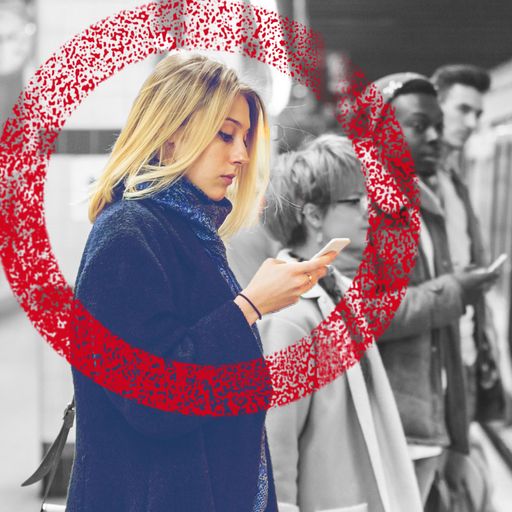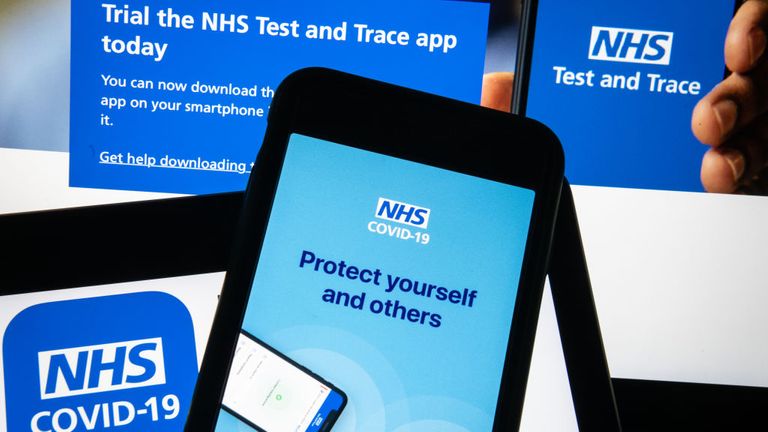An NHS coronavirus contact-tracing app has launched across England and Wales.
As of Thursday evening, it had been downloaded more than one million times by Android users, according to the Google Play Store.
The total figure is likely to be higher when iPhone downloads are included, but Apple does not provide similar figures for app downloads.
Health Secretary Matt Hancock has called the new mobile phone app an “important step forward” in the UK’s fight against COVID-19.
It asks users to self-isolate for 14 days if it detects they were in close proximity to someone with coronavirus.
Is it private?
Yes. All the contacts stay on your phone, so they’re not sent to anyone. Even if someone did get into your phone the data is all anonymous, so all they’d see would be strings of random numbers. As apps go, this is about as private as it gets.
How can I be sure?
The code is open source, so if you’re a developer you can take a look at it. If you’re not you’ll have to take it on trust – but rest assured that the best privacy researchers in the world have pored over it, so this has had some high quality scrutiny.
That’s why countries from Switzerland to Scotland have validated it for use.
Does it work?
It depends what you mean by work. The technology comes from Google and Apple so it’s unlikely that it’s going to break (although even Twitter and Instagram go down from time to time). The developers assured us it won’t drain your battery either.
That’s good. But is it actually going to stop the virus?
Wouldn’t it be great if it did! Sadly we don’t have the technology for that – but in the meantime the app could definitely help.
Think of it this way: if you got a notification telling you the friend you met for coffee has tested positive and then you don’t visit your grandfather as a result, that could literally save his life.
Lots of moments like that could make a very real difference to the spread of the virus.
If I do get a notification, do I have to self-isolate?
You don’t have to in the sense that you won’t be punished if you don’t, but you should all the same.
What if it’s not accurate? At work I put my phone in a locker – I don’t want to be told to isolate just because the guy with the locker next door has a positive test
If you’re in this situation, there’s a switch on the app to turn it off. Of course there are always times where it won’t work perfectly.
If you leave your phone in your jacket and someone else sits next to it, that might trigger the app. This is technology, not magic – but as most of us are pretty attached to our phones it should be okay.
I don’t know. I read somewhere there are lots of false positives
I read that too and I think it’s confusing a few different things.
Sometimes the app will make mistakes about distance: it might think someone was two metres away when actually they were 2.5 metres away.
But you’ll never get a notification if you haven’t been close to someone who’s had a positive test for at least 15 minutes. That’s a good reason to take the alerts seriously.
:: Okay. But what if no-one else downloads it?
As a journalist I can confidently predict the media will obsess over total download figures, but on an individual level we shouldn’t worry about it. If everyone you know has the app, that’s all that matters.
Maybe the best way to think of the app is as the digital version of a mask. If everyone wore one, they’d really work, but just because they don’t in one city doesn’t mean you should stop wearing yours on the bus.
Great! I’ll get my dad to get it. But he’s got an older phone
Oh sorry, he doesn’t get to access it. Yeah. Bit of a downer I know.
Oh. But for me – is it an issue if I work in Scotland?
You’ve hit on another snag. The apps for Scotland and Northern Ireland don’t talk to the app that launched on Thursday in England and Wales. That might change, but until then your best bet is download all the apps separately.
What about the QR code check-ins? Are they private too?
Yes. In fact, this is a good example of just how private the whole system is: it’s so private that if there’s an outbreak then test and trace won’t know who you are.
They can send you a warning – which won’t have the venue’s name in it – but they literally don’t have a clue who you are.
That doesn’t sound great for contact tracing
What can I say? You wanted privacy, you got privacy.
One last question: why didn’t I know all this? It would have been really helpful
To me, this is the biggest worry about the app. On Thursday I went to a mosque in Newham, east London, one of areas of the country that has been worst hit by COVID-19. It has had the app for several weeks as part of the trial.
But the president of the mosque said that at best one in 10 people were using it and he didn’t believe the local community had been properly involved. I’ve heard similar reports from other people in the area. It’s not a great sign.
But then again it’s important to keep these things in perspective.
After the pandemic hit, the mosque set up a food bank. Today it’s still feeding 300 people a week.
When it comes to getting the virus under control, the stakes could hardly be higher. Even if the communication hasn’t been that effective, it makes sense to download the app if you can.



